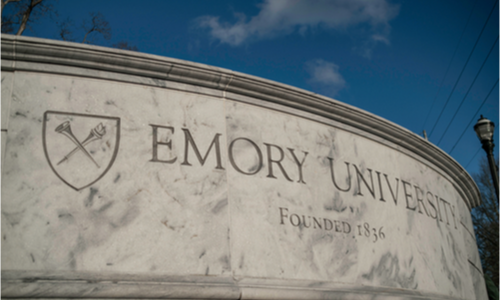Emory University could have provided each undergraduate student on financial aid an additional $14,256 scholarship toward tuition, room, board and fees, on average, if Emory had not colluded with other private, elite universities, a legal brief alleges.
Emory and the 16 other universities listed in the lawsuit — the defendants — filed a motion to dismiss the case, which included arguments about the timeline of Emory’s involvement in the Cartel and the alleged implications of the membership. The defendants’ motion was heard by an Illinois federal district court on Aug. 2. The court denied the defendants’ motion to dismiss the case on Aug. 15.
The effort is part of a lawsuit filed in January by nine former students who attended some of the 17 universities named as defendants in the case. The lawsuit is premised on arguments surrounding these universities’ current or former involvement in the 568 Presidents Group, or 568 Cartel.
More than 200,000 people across all of the universities are involved in the proposed class. The plaintiffs allege that these institutions violated antitrust laws by engaging in price fixing, which is artificially inflating the net cost of attendance for students receiving financial aid.
Want more news? Subscribe to CPI’s free daily newsletter for more headlines and updates on antitrust developments around the world.

